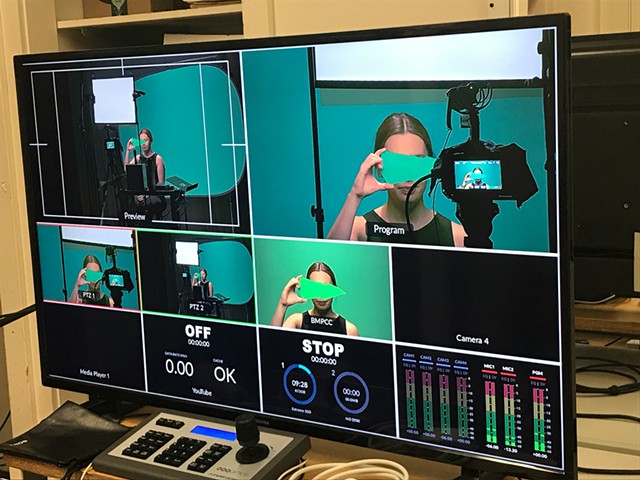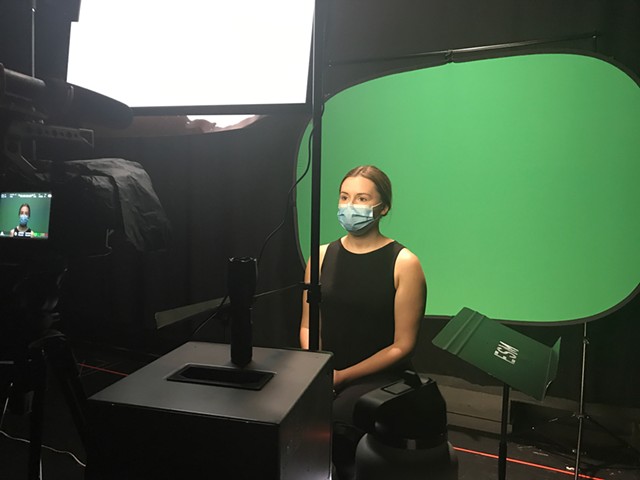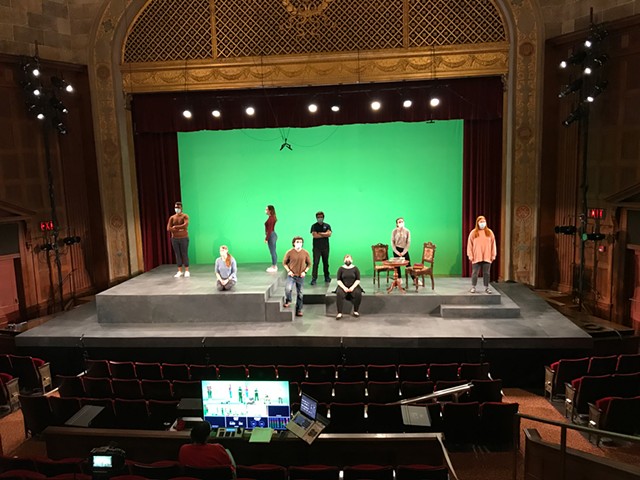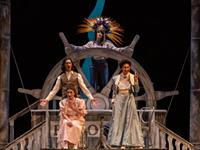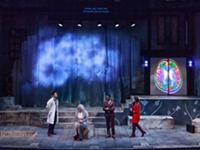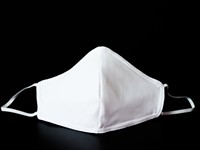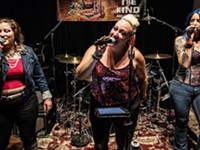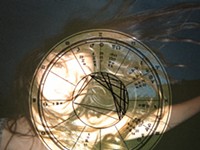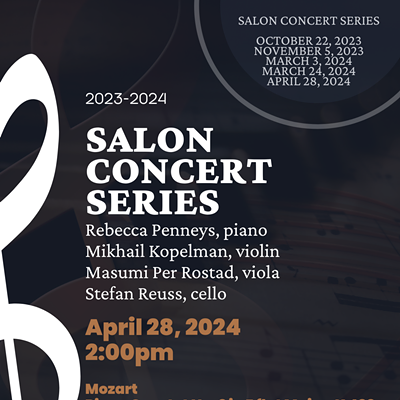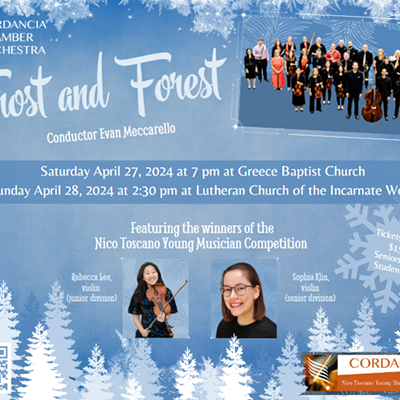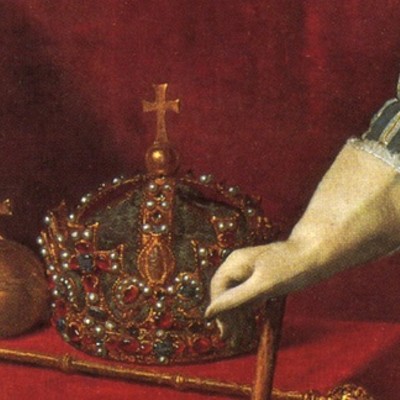Eastman Opera Theatre figures out its first virtual production
Online arias
By Daniel J. Kushner @danieljkushner[
{
"name": "500x250 Ad",
"insertPoint": "5",
"component": "15667920",
"parentWrapperClass": "",
"requiredCountToDisplay": "1"
}
]
Performing live opera in a theater has been impossible during the pandemic. The risks of audience members packed closely together and aerosolized particles flying from the singers’ mouths proved to be an insurmountable challenge for opera companies.
But that doesn’t mean opera has been silenced. Rather than cancel productions altogether, several companies and academic institutions have turned to virtual mediums such as Zoom meetings, podcasts, and pre-recorded videos to innovate the centuries-old art form.
Finger Lakes Opera started releasing a monthly podcast in May. In late September, Binghamton’s Tri-Cities Opera presented “Miranda: a Steampunk VR experience,” a new opera that audiences could interact with through a virtual reality headset or watch on YouTube Live. This fall, 10 different creative teams and nine separate American Opera companies formed the Decameron Opera Coalition to produce “Tales from a Safe Distance,” a series of 11 scenes inspired by the 14th-century author Giovanni Boccaccio’s Black Death stories comprising “The Decameron.”
“It’s a whole new skill set to create a drive-in movie theater, to create a virtual-reality digital opera experience, to learn how to broadcast to your community from your living room,” says Marc Scorca, president and CEO of the national organization OPERA America.
“It’s been a huge learning curve, and a set of new skills that will not desert us once we’re able to go back safely into a theater,” he went on. “I think the exciting thing for the future is how many of our opera companies will become more hybridized in terms of offering live performance and continuing to offer exciting digital content.”
Eastman Opera Theatre follows suit with “Our Voices” — a virtual presentation of six performances, each featuring the work of a different living composer — available as a video stream from Dec. 16 through 20. Each performance will be followed by a 15-minute Q & A session with the director and composer.
For the project, Eastman Opera’s Artistic Director Steven Daigle asked composers Anthony Davis, Ricky Ian Gordon, Lori Laitman, Missy Mazzoli, Ben Moore, and Errollyn Wallen to each help curate 30-minute presentations of their own work, which in turn will be presented as individual virtual performances by Eastman School of Music singers.
Opera traditionally depends on collaboration between singers, composers, and directors that comes from face-to-face interaction. Physical distancing makes that challenging.
Oberlin Opera Theater, in Ohio, faced those obstacles when it presented a virtual double bill featuring Gian Carlo Menotti’s “The Telephone” and Francis Poulenc’s “La voix humaine” in early November.
“We were out to make an opera that felt like an opera, that just happened to be filmed,” the director Jason Aaron Goldberg says.
Goldberg discovered that the key was to make sure the video used plenty of fixed shots and used few cuts, filming in one take as much as possible.
Both the voices and the piano accompaniment were recorded separately from the video, with the singers lip-syncing to the pre-recorded audio. The reason for this choice was a budgetary one, Goldberg says, but it had a poignant, if unintended result.
“This had an interesting effect for film that made it feel like theater, which is that they were able to act in ways that they wouldn’t have been able to act if they were singing,” he says.
In order for Eastman Opera Theatre to safely create its performances, the composers first met extensively with the students and creative teams over Zoom.
Missy Mazzoli sees this means of collaboration continuing beyond the pandemic, when live opera performances return. “We have more ways to communicate now,” she says. “We’ve proven that, and so let’s use that.
“I long to get back in the rehearsal room with people. I don’t think anyone’s going to want to see a total virtual opera that’s 100 percent on Zoom ever again after this, but there are aspects of this that we can bring into the future.”
The opportunity for the students to collaborate with current composers only heightened their sense of engagement, Ricky Ian Gordon says.
“These singers have to bring their whole selves,” he says. “They’re not singing music by a dead composer. They’re singing for me, and I’m the one telling them what I meant, and I’m the one talking them through the poetry.”
Eastman vocal coaches worked with the singers to establish a distinct musical interpretation of the songs, and then pre-recorded the piano accompaniments. For five of the six performances, the music was then played through monitor-speakers that the performers sang to, in costume and in front of a green screen on which the digital set designs could be projected for the final edit of the videos.
“What we always wanted to do with this project was to make the collaboration something different, based on this environment,” Daigle says. “Instead of getting rid of it, to try to reinvent it.”
The absence of a live performance component and the thorough integration of digital and virtual elements makes for somewhat uncharted territory — not just for Eastman Opera theatre, but for the opera world at-large.
But when the prohibitive effects of COVID-19 on the performing arts subsides, and opera companies return to presenting works in front of live audiences, the paradigm for how productions are made is likely to have shifted.
“There are so many very, very interesting projects going on right now that are opportunities for composers and librettists to create new work, for directors to think differently about how to make opera work on the screen and not necessarily on the stage,” Marc Scorca says.
“So there’s a lot of experimentation going on, but I think it expands the creative opportunities for artists who are willing to think more broadly about what the next opera might be.”
Eastman Opera Theatre presents “Our Voices” from Wednesday, Dec. 16 through Sunday, Dec. 20. For more details and to watch the performances, go to esm.rochester.edu/EOT/ourvoices.
Daniel J. Kushner is CITY’s music editor. He can be reached at [email protected].
But that doesn’t mean opera has been silenced. Rather than cancel productions altogether, several companies and academic institutions have turned to virtual mediums such as Zoom meetings, podcasts, and pre-recorded videos to innovate the centuries-old art form.
Finger Lakes Opera started releasing a monthly podcast in May. In late September, Binghamton’s Tri-Cities Opera presented “Miranda: a Steampunk VR experience,” a new opera that audiences could interact with through a virtual reality headset or watch on YouTube Live. This fall, 10 different creative teams and nine separate American Opera companies formed the Decameron Opera Coalition to produce “Tales from a Safe Distance,” a series of 11 scenes inspired by the 14th-century author Giovanni Boccaccio’s Black Death stories comprising “The Decameron.”
“It’s a whole new skill set to create a drive-in movie theater, to create a virtual-reality digital opera experience, to learn how to broadcast to your community from your living room,” says Marc Scorca, president and CEO of the national organization OPERA America.
“It’s been a huge learning curve, and a set of new skills that will not desert us once we’re able to go back safely into a theater,” he went on. “I think the exciting thing for the future is how many of our opera companies will become more hybridized in terms of offering live performance and continuing to offer exciting digital content.”
Eastman Opera Theatre follows suit with “Our Voices” — a virtual presentation of six performances, each featuring the work of a different living composer — available as a video stream from Dec. 16 through 20. Each performance will be followed by a 15-minute Q & A session with the director and composer.
For the project, Eastman Opera’s Artistic Director Steven Daigle asked composers Anthony Davis, Ricky Ian Gordon, Lori Laitman, Missy Mazzoli, Ben Moore, and Errollyn Wallen to each help curate 30-minute presentations of their own work, which in turn will be presented as individual virtual performances by Eastman School of Music singers.
Opera traditionally depends on collaboration between singers, composers, and directors that comes from face-to-face interaction. Physical distancing makes that challenging.
Oberlin Opera Theater, in Ohio, faced those obstacles when it presented a virtual double bill featuring Gian Carlo Menotti’s “The Telephone” and Francis Poulenc’s “La voix humaine” in early November.
“We were out to make an opera that felt like an opera, that just happened to be filmed,” the director Jason Aaron Goldberg says.
Goldberg discovered that the key was to make sure the video used plenty of fixed shots and used few cuts, filming in one take as much as possible.
Both the voices and the piano accompaniment were recorded separately from the video, with the singers lip-syncing to the pre-recorded audio. The reason for this choice was a budgetary one, Goldberg says, but it had a poignant, if unintended result.
“This had an interesting effect for film that made it feel like theater, which is that they were able to act in ways that they wouldn’t have been able to act if they were singing,” he says.
In order for Eastman Opera Theatre to safely create its performances, the composers first met extensively with the students and creative teams over Zoom.
Missy Mazzoli sees this means of collaboration continuing beyond the pandemic, when live opera performances return. “We have more ways to communicate now,” she says. “We’ve proven that, and so let’s use that.
“I long to get back in the rehearsal room with people. I don’t think anyone’s going to want to see a total virtual opera that’s 100 percent on Zoom ever again after this, but there are aspects of this that we can bring into the future.”
The opportunity for the students to collaborate with current composers only heightened their sense of engagement, Ricky Ian Gordon says.
“These singers have to bring their whole selves,” he says. “They’re not singing music by a dead composer. They’re singing for me, and I’m the one telling them what I meant, and I’m the one talking them through the poetry.”
Eastman vocal coaches worked with the singers to establish a distinct musical interpretation of the songs, and then pre-recorded the piano accompaniments. For five of the six performances, the music was then played through monitor-speakers that the performers sang to, in costume and in front of a green screen on which the digital set designs could be projected for the final edit of the videos.
“What we always wanted to do with this project was to make the collaboration something different, based on this environment,” Daigle says. “Instead of getting rid of it, to try to reinvent it.”
The absence of a live performance component and the thorough integration of digital and virtual elements makes for somewhat uncharted territory — not just for Eastman Opera theatre, but for the opera world at-large.
But when the prohibitive effects of COVID-19 on the performing arts subsides, and opera companies return to presenting works in front of live audiences, the paradigm for how productions are made is likely to have shifted.
“There are so many very, very interesting projects going on right now that are opportunities for composers and librettists to create new work, for directors to think differently about how to make opera work on the screen and not necessarily on the stage,” Marc Scorca says.
“So there’s a lot of experimentation going on, but I think it expands the creative opportunities for artists who are willing to think more broadly about what the next opera might be.”
Eastman Opera Theatre presents “Our Voices” from Wednesday, Dec. 16 through Sunday, Dec. 20. For more details and to watch the performances, go to esm.rochester.edu/EOT/ourvoices.
Daniel J. Kushner is CITY’s music editor. He can be reached at [email protected].
Speaking of...
Latest in Music Features
More by Daniel J. Kushner
-
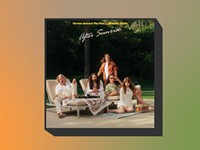
Album Review | 'After Sunrise'
Apr 9, 2024 -
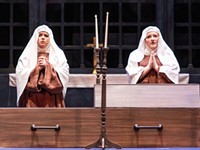
Opera Review | 'Dialogues des Carmélites'
Apr 5, 2024 -
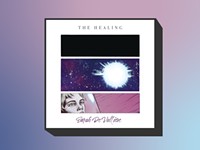
Music Review | 'The Healing'
Apr 4, 2024 - More »
